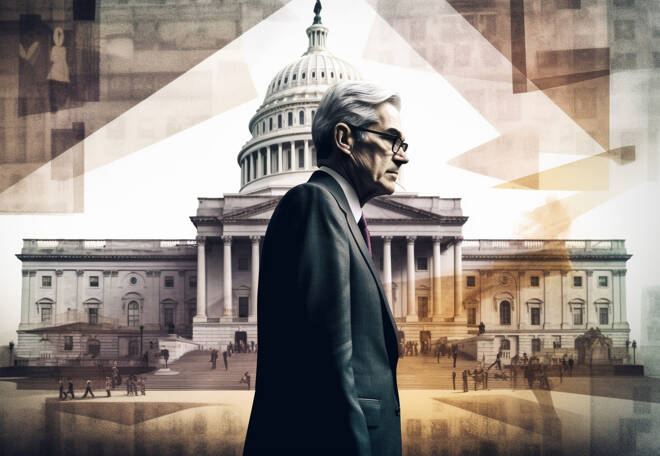Advertisement
Advertisement
Trump-Powell Feud Escalates: Rate Cut Pressure Sparks Concern Over Fed Autonomy
By:
Trump renews attacks on Fed Chair Powell, demanding rate cuts and raising fears over Fed independence—markets brace for rising political risk.
Trump vs. Powell: Could Political Pressure Undermine the Fed’s Credibility?
President Donald Trump’s renewed public attacks on Federal Reserve Chair Jerome Powell have re-ignited market concerns about central bank independence. Traders are now closely watching the political risks surrounding U.S. monetary policy, as Trump’s push for rate cuts collides with Powell’s data-driven stance, fueling uncertainty over both policy direction and institutional stability.
Why Is Trump Pressuring Powell on Interest Rates?
Trump has intensified criticism of Powell, accusing him of hurting the economy by keeping rates too high. Citing the European Central Bank’s recent cuts, Trump argues that the Fed should ease policy to lower borrowing costs and spur growth. His latest remarks—suggesting Powell’s “termination cannot come fast enough”—signal an aggressive stance likely aimed at influencing upcoming decisions, especially as borrowing costs weigh on housing and business investment.
How Is the Fed Responding?
Powell and key Fed officials have pushed back. Speaking in Chicago, Powell emphasized the need for “greater clarity” before adjusting rates, highlighting risks tied to Trump’s own tariff proposals, which could fuel inflation. New York Fed President John Williams reinforced the message, stating there’s currently no reason to change policy. The Fed’s resistance suggests it won’t shift course in response to political rhetoric, a move that may reassure some but frustrate those expecting policy easing.
Could the Fed’s Independence Be at Risk?
Legal uncertainty over the president’s power to remove the Fed chair is adding complexity. Trump has reportedly explored firing Powell and considered replacing him with former Fed governor Kevin Warsh. However, Warsh has reportedly advised against it, and Treasury Secretary Scott Bessent has cautioned the White House about the financial risks. Markets have already responded: odds of Powell stepping down this year have doubled on prediction platforms like Kalshi.
What Happens if Powell Is Forced Out?
Analysts warn that a forced removal could trigger volatility across Treasury and currency markets. Schwab strategist Kathy Jones and Senator Elizabeth Warren both highlighted the risk of a market selloff if the Fed’s independence is compromised. The IMF has also voiced concern, warning that credibility in monetary policy depends on shielding central banks from political interference.
Market Forecast: Bearish Bias with Political Risk Premium
Traders should prepare for heightened volatility as Fed independence becomes a political flashpoint. While monetary policy remains steady for now, legal and political threats to Powell’s tenure could introduce a risk premium into Treasurys and the U.S. dollar. Without resolution, markets may begin pricing in governance instability alongside economic fundamentals.
More Information in our Economic Calendar.
About the Author
James Hyerczykauthor
James Hyerczyk is a U.S. based seasoned technical analyst and educator with over 40 years of experience in market analysis and trading, specializing in chart patterns and price movement. He is the author of two books on technical analysis and has a background in both futures and stock markets.
Advertisement
